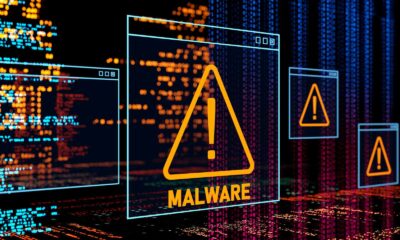Cyber Crime
Shielding 5G Networks: Indigenous Tech Thwarts Zero-Day Attacks in Advance

NEW DELHI: In a significant leap forward for the security of 5G networks, a pioneering indigenous software technology solution has been unveiled that promises to proactively detect and prevent zero-day vulnerability attacks. The breakthrough is expected to drastically reduce network downtime, contributing to more seamless countrywide communication as 5G networks become the backbone of modern connectivity.
A New Frontier in Network Security
Approximately ninety percent of the intricate 5G technology is implemented through software, incorporating cutting-edge technologies such as Network Function Virtualization (NFV), Software-Defined Networking (SDN), and control plane/user plane segregation. While these advancements enable easier testing and implementation of 5G technology, they also exponentially expand the attack surface, making manual management of security virtually impossible. The solution lies in automating the testing process and instituting continuous monitoring as the only viable and sustainable approach.
Identifying Zero-Day Vulnerabilities: A Crucial Challenge
Presently, the majority of zero-day vulnerabilities in runtime are only identified after an attack has already occurred. This reactive approach not only inflicts damage on a brand’s reputation but also escalates the costs associated with recovery efforts. Recognizing the urgency to address this issue, the IITM Pravartak Technologies Foundation at the Indian Institute of Technology Madras (IIT Madras), in collaboration with its incubated startup, has embarked on a mission to develop an indigenous security testing solution targeting the 5G core network functions and Radio Access Network (RAN) software.
ALSO READ: Deepfake Nightmare: Sextortionists Resort To Morphed Dead Videos Of Girls For Higher Ransom
Proactive Defense through Innovative Techniques
The technology solution devised by the IITM Pravartak team aims to revolutionize network security by pre-emptively identifying zero-day vulnerabilities. This is achieved through a combination of advanced techniques, including fuzzing and test oracles. By subjecting the system to rigorous testing in a controlled environment, potential vulnerabilities are exposed, enabling the team to address them before malicious actors can exploit them.
ALSO READ: Unveiling Maya OS: India’s Bold Leap to Secure Cyber Sovereignty – All You Need To Know
Ethical Hacking and Rigorous Testing
The IITM Pravartak team adopted an ethical hacking approach to unearth potential vulnerabilities within the 5G network system. The team systematically tested for functionality issues, devising various attack scenarios based on network topology, feature interaction, and the number of nodes involved. These scenarios were meticulously crafted to adhere to the defined 5G standards set by the 3rd Generation Partnership Project (3GPP).
ALSO READ: DSCI’s Best Practices Meet 2023: Uniting Cyber Security Experts for a Tech-Secure Tomorrow
A Comprehensive Testing Regimen
To ensure the robustness of their solution, the team is conducting comprehensive interoperability and security tests with multi-vendor products. These tests span multiple levels, including the network packet level, binary level, and code level. Additionally, state-of-the-art code vulnerability scanners are employed to bolster the testing process. By combining these diverse methodologies, the team aims to implement a comprehensive pre-emption mechanism that significantly reduces the occurrence of zero-day attacks.
A Safer and More Reliable 5G Future
The potential impact of this indigenous software technology solution on 5G networks is profound. By identifying and mitigating zero-day vulnerabilities in advance, the technology not only shields organizations from losses but also safeguards the credibility of their brands. Moreover, this groundbreaking development will lead to a substantial reduction in the attack surface area, thereby diminishing the need for ransom payments and significantly curbing network downtime. As 5G networks continue to play an indispensable role in modern communication, innovations like these mark a vital step toward a safer and more resilient digital future.
Follow The420.in on
Telegram | Facebook | Twitter | LinkedIn | Instagram | YouTube


